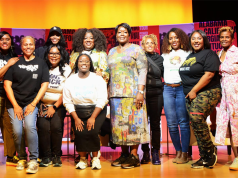Compiled by Ryan Michaels
Photos by Amarr Croskey and Joe Songer
The Birmingham Times
Birmingham, known as a cradle of civil rights history, today still contains numerous strong voices pushing for change locally and across the country. Within the activist community are those fighting for environmental justice, justice system reform and better connectivity among communities, among other issues. But these individuals all have one thing in common—improved quality of life for all.
Here are a few of those voices.
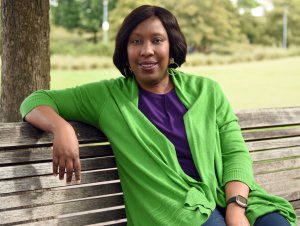
Name: Shauntice Allen
Age: 45
Organization: Greater-Birmingham Alliance to Stop Pollution (GASP)
Your passion: “Giving voice to those who are impacted by bad public decision making.”
What does a better Birmingham look like: “One where the whole notion of inclusivity and inclusiveness is shown and demonstrated in who’s at the decision-making table or tables. That that would I hope be something that allows for better a Birmingham to thrive, and also ensure that people have what it is that they need when they need it . . . I think that kind of lends itself back to different voices being in spaces and places to be heard and actually listened to, so when those needs do arise, because they will, that people’s voices were actually they were heard, and the decisions around how those needs are met with community voices in mind.”
Favorite quote/Words you live by: “We all do better, when we all do better.” -Paul Wellstone, former U.S. Sen. representing Minnesota from 1991-2002
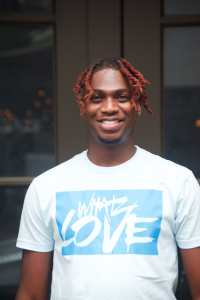
Name: Carlos Chaverst Jr.
Age: 29
Organization: Carlos Chaverst Foundation
Your passion: “We focus on whatever the direct needs are at that moment, and that varies… giveaways, putting up money for information on murders, connecting individuals in need to other organizations. We hold an annual Mother’s Day brunch, where we invite mothers out to a free brunch, and we give away televisions and . . . have deals for all the mothers that come just as a token of appreciation. It’s kind of hard to put a timeline because we are always doing something.”
What does a better Birmingham look like: “A better Birmingham is one where everyone has the same opportunities and economic freedom. Right now, 1 percent of Birmingham lives in wealth…Birmingham’s wealth makeup looks the exact same as the wealth makeup of the entire United States of America. 1 percent of the United States of America lives truly wealthy. Meanwhile, 99 percent of the country is kind of struggling. For me, a better Birmingham is where people have opportunities and equitable jobs and skillsets where they don’t have to rob people, [where] they don’t kill people.
“A better Birmingham is where you have leaders that you truly believe in because they’re truly working on behalf of the people that elected them. A better Birmingham is just making sure that you have a school system that is top notch in the country, that you’re able to brag about your school system . . .I truly believe that Birmingham will not be as progressive as it could be, but it has nothing to do with electing younger people. It has more so to do with electing the right people.
Favorite quote: “Activists are not made. They are born.” – Birmingham activist Frank Matthews
“Injustice anywhere is a threat to justice everywhere.” – Dr. Martin Luther King Jr.
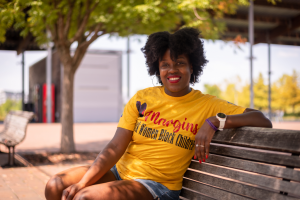
Name: Jenice Fountain
Age: 30
Organization: Margins/Yellowhammer Fund
Your passion: Reproductive justice
What does a better Birmingham look like: “I think that we [need to] really genuinely look at grassroots organizing as a serious, if nothing else, complement to what the state is doing [through welfare and other social services]. We can’t only fund state programming. It’s leaving people out. The only way to make sure that people aren’t being left out is to fund people on the ground that are doing the work, and they’re making sure that everybody is assisted that needs assistance. Maybe just holding up grassroots efforts at the same rate that we hold up state programming and acknowledging grassroots efforts.”
Favorite quote/Words you live by: “Love radically, with intention.”
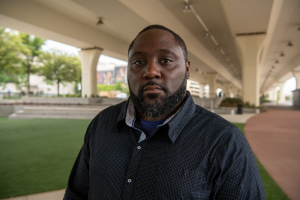
Name: Eric Hall
Age: 40
Organization: Black Lives Matter Birmingham, Jobs with Justice
Your passion: Human rights
What does a better Birmingham look like: “A city where Black lives truly matter. I think we need beyond just merely saying that, but our policies, our actions, need to reflect that, and I’ve said a lot of times that we have Black leadership, and we have people in places and positions of power that can really kind of push things to where it can kind of change the dynamics that overall Black Birmingham faces, but we have a huge divide in our city, and we can’t ignore race. Race does matter. And so I think that we need to really kind of shift policies in place that really will be beneficial to the majority of the city.”
How do we curb homicides in the city: “We need more investment in our community. Based off of what I know from being connected…to the streets, a lot of the younger guys who are committing acts of violence, engaging in violent crime, there are some other issues that exist. A lot of those issues are due to lack of resources, not being able to be gainfully employed, sustaining employment, so I feel like if those guys had other opportunities available, then I don’t think that they will position themselves to wanting to get into illegal activity, whether it’s selling drugs, or whether it’s robbing, if in fact, they had a livable wage and were able to sustain themselves and a family.
“I think we need to invest more in people and develop real, relevant relationships with the residents. A lot of our leaders are out of touch, just to be honest, so they have to be very strategic and intentional with the resources in the city.”
Favorite quote/Words you live by: “Black lives matter. It’s more than an organization, it’s more than a rallying cry. It’s more than an affirmation for Black lives. It’s so much more, and it really means a lot…my commitment, my value, my everything centers that, that Black lives matter.”
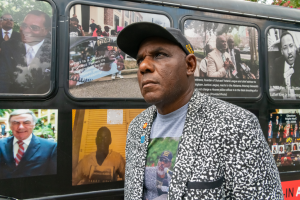
Name: Frank Matthews
Age: 66
Organization: Outcast Voters League
Your passion: “Crime, gangs and politics.”
What does a better Birmingham look like: “When you look at the true numbers of how Birmingham is really getting along, holistically, it’s not what it claims to be. [We should focus on] the reality of where we’re at and stop this ‘how far we’ve come.’ We haven’t come that far if the economic divide is [still there]. You still got abject poverty, you still got families, 2 or 3 percent of Black people that live in Birmingham, guess what? Almost 45 percent of them are in abject poverty, and the rest are in poverty, not even the poverty line…In most cities, he that has the political power, has the economic power, and Black Birmingham has a Black mayor, a basically Black Council, Black fire chief, and anywhere else, that power of politics and population, both of them are supposed to yield a greater dividend to the popular side, not in Birmingham. The color of racism is poverty…because any leaders that are Black…they can be invited to the top galas, the top everything, so that’s the face that you a lot of times see.
How do we curb homicides in the city: “The city needs to give me the [funding] I have consistently asked him for. I’m gonna get personal because my moniker was ‘God’s Gangster,’ right? I was appointed by [former Mayor Richard] Arrington as the first guy with a criminal history record — (as a teenager growing up in Cleveland, Ohio, Matthews said he had been arrested more than 30 times and while in jail, he found God) — appointed as liaison to deal with the gang problem, and at that time, we’d had the largest number of homicides ever, and after he appointed me, and I went to work, I did a whole collage and multiplicity of different things…We had 45 God’s Gangsters, and we went to house parties, on our own accord, to find out how it’s going to be because we were connected to all the different gangs across the city, and we carried that program on, and it was called Operation Texaco [Take Exception X All Crime Out], and I developed the tenets of it when I was in prison.”
…
“The initial endeavor after [Arrington] had deployed me, we got so involved across the city that we didn’t have a single homicide for three months.”
Favorite quote/Words you live by: “Money is not the solver of all problems, but money is the solver of almost 90 percent of any nation, any city, any whatever, and especially, if it’s a capitalistic nation.”
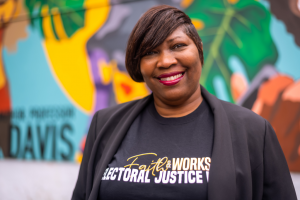
Name: Cara McClure
Age: 52
Organization: Faith & Works
Your passion: “Bridging the gap between the faith community and the activist community.”
What does a better Birmingham look like: “I think a better Birmingham would include more equity across the board, not just performance. I would imagine more investment in people, rather than more policing. It would look like having mental health services and job resources and community centers across the city. I can’t remember what percentage of poverty we have in Birmingham—but that number could be significantly lower. It would look like every community, when a child walks to school, the pathway to school will be an inspiring path, not a path where I leave my door to walk to school, and I’m seeing needles on the ground, I’m seeing abandoned homes, I’m seeing a liquor store, but that child can wake up to a clean community and clean environment and a path to school that’s inspiring, Just like if you take them by the [Birmingham] Civil Rights Institute. That whole area, you pass signs that tell you some history, and I imagine a child’s path to school could be signs that say, ‘You are great,’ ‘You’re excellent,’ ‘You can do whatever you put your mind to’ all the way to school.”
Favorite quote/Words you live by: “When you take your eyes off your long-term goals, you enslave yourself to your immediate.”
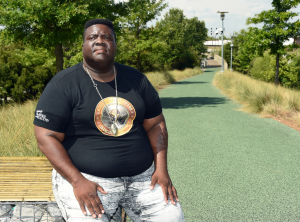
Name: Clarence Muhammad
Age: 47
Organization: Birmingham Black Economic Alliance
Your passion: “Justice.”
What does a better Birmingham look like: “I think that economic justice is for the African American community, and what I mean by that is, in terms of…getting more contracts for African American businesses, resources for those businesses that are startups, and just in general, training for those–not even money–just help for those that may have the money, but they just need the connection, then they just need the employment in the right direction, so I think in economic justice is really where I think that if we had more economic justice, local businesses that are Black or African American owned could be able to increase their capacity, they could hire more folks, and in turn, bringing more resources in, they can do more advocacy work for the community as larger corporations.”
How do we curb homicides in the city: “I think that no one is [to blame], but I think everyone has to play a part, and what I mean is that it’s got to be a holistic approach to dealing with violence. I remember my mentor–he passed, he was one of our great activists that mentored so many–Washington Booker, and he always used to say, ‘Brother, when it gets hot, that’s when a lot of shooting takes place,’ and it seems kind of true. In Birmingham, we’ve been overheating, and we’ve been getting a lot of violence, and I think that comes from frustration. ‘It’s hot, I don’t have no money, I don’t have a job, I can’t do anything for my baby,’ or just in general, ‘I don’t have money, and I can’t enjoy a better life than I see either my peers, or the people on the other side of the tracks enjoy.’ I think that the heat, as well as economic injustice, creates a recipe for violence…If you look at the areas, I think that most of these folks are just frustrated, and then it turns into internal strife…and just a little thing sets people off.
“I can honestly say that I have walked the streets and tried to get in between gunfire and folks that wanted to hurt each other, and we found ways to mediate, but in the future, I think is it’s got to be more centered around the economic side, social services, mental health services. People need a lot. Our community needs a lot…so I honestly don’t play the blame game because it’s everybody’s responsibility to make it better.”
Favorite quotes/Words you live by: “A luta continua,” Portuguese for “the struggle continues”; the rallying cry of the democratic socialist FRELIMO movement during the Mozambican War of Independence, which took place from 1964 to 1974.”
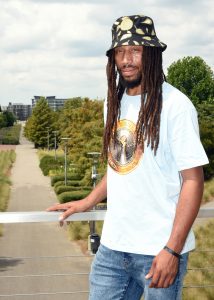
Name: Cory Pettway
Age: 34
Organization: 1,000 Black Men Deep Walk, New Era Birmingham, The Willing Family
Your passion: “Community relationship building.”
What does a better Birmingham look like: “More unity amongst people of color within our communities. A better Birmingham would be us basically, in one community, able to keep our funds going through our community, having local businesses, local activities, local parks that are kept up by the businesses that are in the community, that the people who live there are going to and frequently buying and spending with them…Growing up, we knew who Mr. Pettway was in our community. That was one of my great uncles, but he owned a store. Whenever they had something for the basketball team or something where they had to raise funds for new jerseys. They would go to Mr. Pettway. Mr. Pettway was going to write a check for them to get new uniforms, but that was because everybody’s families went and shopped with him…In today’s world, we cater to the large markets, the large brands, so we may go shop with a Walmart and spend all our money there, but when it’s time for some needs inside the school, that Walmart may not be able to fit those needs all the time. It’s very selective on the funds from Walmart that are given. I’ve tried to do that a few times, so I know the difference in when it’s somebody’s local versus that.”
How do we curb homicides in the city: “We were so excited to the recreational center, when we got out of school…but now, here inside the city…when you go to some of these rec centers, sometimes they’re not open, or some of them only have certain particular times that [people] can play basketball. Some of them, if you’re not a resident of that area or you don’t have an ID or whatever, you can’t play ball. In my eyes, there is a lack of things for the youth to do. There is a lack of opportunities for children, for youth, for adolescents, for teenagers and in between, to actually have opportunities to commune with each other, to doggone play basketball with each other, go to a park together, whatever the case it may be, to where they can build a relationship, so the first time they interact with somebody, it’s not when something went wrong, and there’s actually a sense of care.
Favorite quote/Words you live by: “All power to the people.”
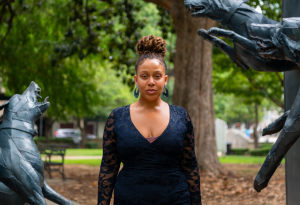
Name: Celida “Celi” Soto
Age: 42
Organization: Alabama Arise, Fountain Heights Farm, Margins, SWEET (Sustainable Water, Energy and Economic Transition in) Alabama
Your passion: “Hunger policy”
What does a better Birmingham look like: “A better Birmingham, for me, is one where the people of Birmingham in the neighborhoods, predominantly BIPOC (Black, Indigenous and People of Color) neighborhoods have sovereignty over their land and over the food that grows from it. It looks like them having a decision-making power over budgetary needs, and the two words that best define that are participatory budgeting…That would be the implementation of participatory budgeting where the residents Birmingham have a say in some of how the budget is spent…I ran for office, and I canvassed. I engaged in deep canvassing, which is not the typical binary process where you ask somebody, ‘Are you gonna vote for me? Yes or no?’ It’s where we really sit with residents and dream with them, reimagine what Birmingham could look like. That insight allowed me to see that people have an array of concerns, but that most of them, if not all, would be resolved if they can assign some of Birmingham’s budget to their immediate needs, their dilapidated homes, their access to food, recreational availability, so I think participatory budgeting will allow for that level of sovereignty over their immediate needs.
Favorite quote/Words you live by: “The opposite of poverty is not wealth. In too many places, like Birmingham, the opposite of poverty is justice.” – a quote, adjusted to specifically reference Birmingham, from Bryan Stevenson, founder and executive director of the Equal Justice Initiative.
If there is a Birmingham (AL) activist you think should be on this list email bwright@birminghamtimes.com with Bham Activist in the subject line with the activist’s name and what makes their work stand out.



